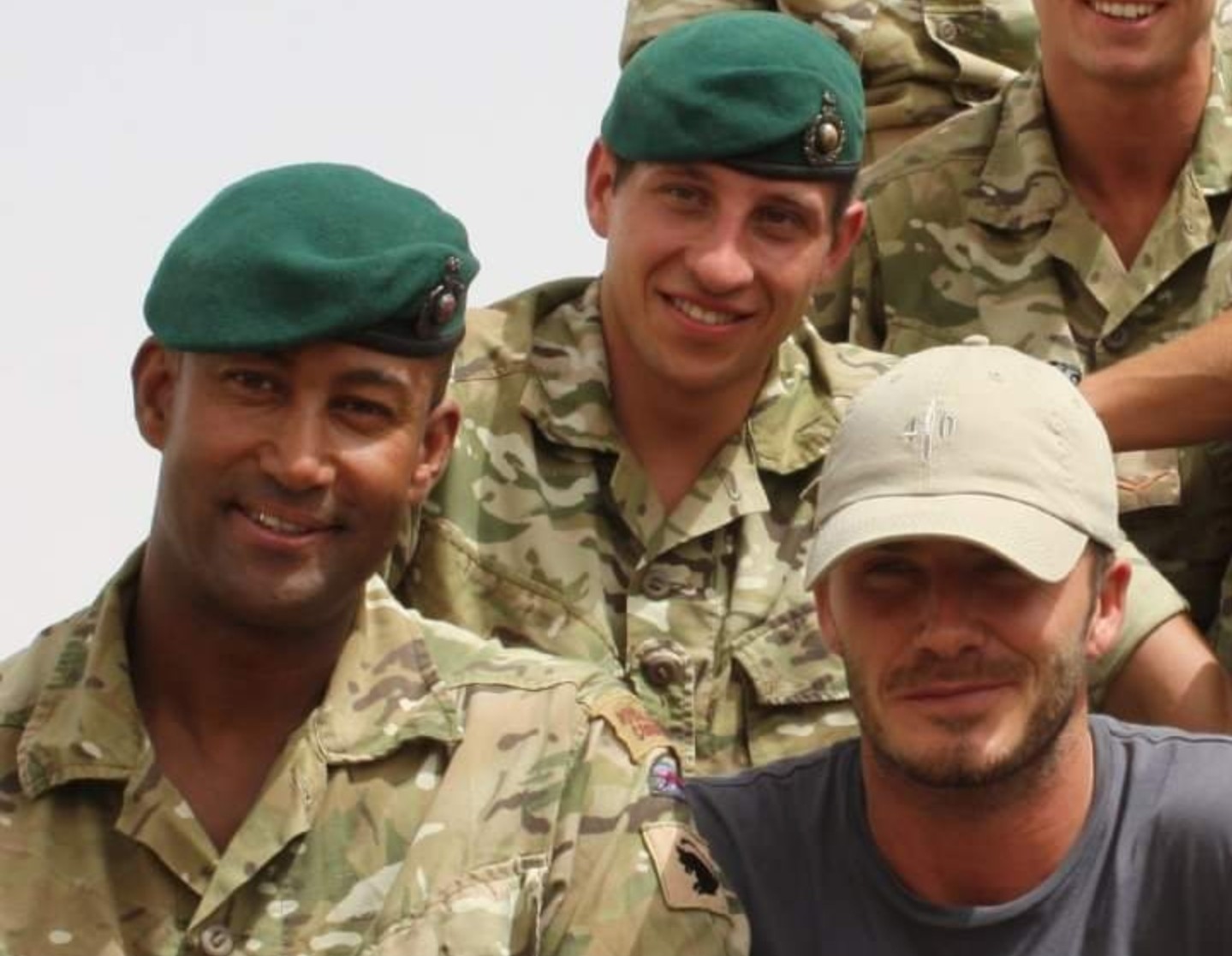Published on: 25th June 2025
A Royal Marine veteran has praised a specialist mental health service for therapy that ‘worked like magic’ and helped him to manage overreactions and painful thoughts and memories.
 Troy (pictured left), 57, from Greater Manchester, was referred to our Military Veterans’ Service after his reactions to everyday situations were becoming extreme.
Troy (pictured left), 57, from Greater Manchester, was referred to our Military Veterans’ Service after his reactions to everyday situations were becoming extreme.
"Before I accessed the service, my perspective was that things weren't that bad," Troy recalls.
"However, my friends, family, and colleagues were telling me that some of my thoughts surrounding danger or threat were a little bit extreme. I was always overreacting to small slights and perceived insults."
“I had over-the-top reactions to people dropping litter, not picking up their dog's poo, or not disciplining their children. I also experienced a bit of road rage.
“I would play it over and over in my mind how I would defend myself if someone attacked me. Obviously, it never happened, and the likelihood of it happening was very, very small, but my mind had amplified it.”
The Military Veterans’ Service helped Troy to realise how extreme his thoughts were, and helped him develop strategies to combat and deal with them.
Cognitive analytic therapy (CAT) helped Troy to understand how his childhood experiences influenced his reactions to people and situations around him.
Troy explains "It allowed me to understand how I related to the people and situations around me. It also helped me realise that many of these situations were connected to my childhood and some quite difficult times I experienced as a child."
He also made use of cognitive behavioural therapy (CBT), which provided him with additional valuable ways to cope with his feelings.
"These strategies were again connected to some of the difficult situations I found myself in during childhood that had developed and manifested themselves in my adult life.”
The third stage of Troy's therapy was eye movement desensitization and reprocessing (EMDR) therapy, which had a significant impact on Troy's ability to process traumatic experiences from his past.
"It worked like magic," Troy shares. "I had not thought about those experiences in that way for years, and I had buried the emotional reaction to them.
“But having gone through it and relived those experiences during the EMDR therapy, I walked away from every session and recalled the memory that had always given me a bit of anguish, concern, pain, and frustration, and felt absolutely nothing. It was like it had been erased from my mind."
Throughout his journey, Troy appreciated how the therapy was tailored to meet his needs.
He said: "What was good about my therapy was that it felt bespoke. I was always given a choice and allowed to understand what type of therapy or strategy I was going to be embarking on.
“My therapist explained it to me in quite good detail, but in simple language that I could understand. And yeah, it really worked."
Chris Barry is a highly specialist psychotherapist with the Military Veterans’ Service (MVS), who provided these therapy sessions with Troy.
Chris added: “Together we discussed what strategies and therapies would be most beneficial to Troy, and I’m glad he has found it so helpful. Troy now has the skills and strategies to cope and can always call on us if he needs more support.”
“We are here to support British ex-serving personnel who are experiencing mental health difficulties.
A number of our staff are veterans themselves, or have family members in the forces. Our team understand armed forces culture and the types of issues you may experience. Please reach out if you need support.”
The Military Veterans Service (MVS) covers Greater Manchester and Lancashire. It can provide evidence-based treatments for anxiety, depression, post-traumatic stress symptoms, alcohol and substance issues, adjustment difficulties, and anger problems.
For more information visit: www.penninecare.nhs.uk/militaryvets